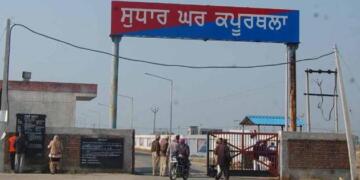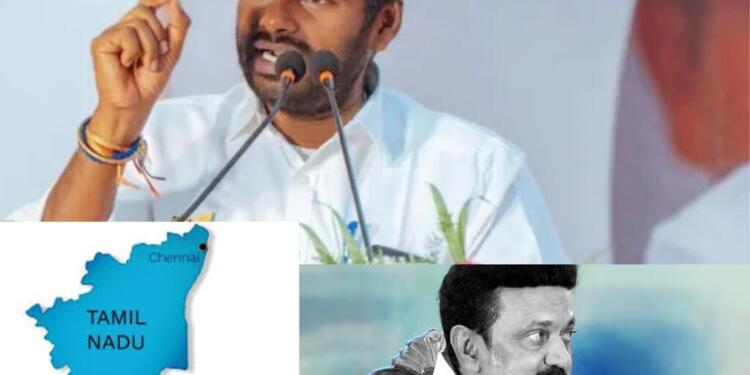As the Hindu Munnani’s Murugan Devotees’ Conference in Madurai emerged as a resounding success, drawing massive public support and reaffirming its cultural connection with Tamil society, the DMK has once again reached for its old playbook of stoking a language-based controversy to divert public attention from the deteriorating law and order situation in the state. With the spotlight on the saffron party’s soaring influence among Tamil devotees, especially the youth, the ruling party has resorted to questioning the Centre’s language fund allocation, blaming it for alleged discrimination against Tamil.
Tamil Nadu Chief Minister M.K. Stalin’s statement, triggered by an RTI-based report, accuses the BJP-led Centre of favouring Sanskrit over Tamil and other classical Indian languages. But the timing and tone of the accusation raise more questions than answers, especially given the DMK’s own track record when it was part of the Union government.
A Tired Refrain: DMK’s Repeated Language-Based Offensives
The DMK has, over the years, perfected the art of using language politics as a smokescreen to shield its governance failures. This isn’t the first time the party has accused the Centre of linguistic bias. Be it opposition to NEET, the New Education Policy, or now the RTI revelation, the DMK routinely invokes Tamil identity to polarise voters and distract from administrative shortcomings. Ironically, when the DMK was part of the UPA government from 2006 to 2014, only Rs 75.05 crore was allocated for Tamil, while Rs 675.36 crore was allocated for Sanskrit. Where was the outrage then? What prevented them from building Tamil universities in other states or establishing international Tamil language centres?
Furthermore, even in 2023, the Tamil Nadu School Education Department under the DMK government allocated Rs 11.68 crore for the development of the Sanskrit language. If Sanskrit is a “northern” imposition, why this hypocrisy at home?
Fact Check: What the RTI Data Actually Shows
According to the RTI-based report, the Centre has allocated Rs 2,532.59 crore for Sanskrit between 2014 and 2025, while Tamil received Rs 113.48 crore. However, as BJP leader K. Annamalai pointed out, the difference in allocation stems from infrastructure. India has 18 Sanskrit universities, but only one for Tamil. The Centre does not arbitrarily deny funds to Tamil; states must propose viable projects and institutions to qualify for such grants. In that regard, Tamil Nadu’s contribution has been modest.
In his social media post responding to Stalin, Annamalai rightly questioned the DMK’s inaction during its power stint at the Centre and accused the party of baking “vadas of Tamil patriotism” without meaningful action.
PM Modi: A Consistent Voice for Tamil Pride on Global Platforms
Unlike the DMK’s selective outrage, Prime Minister Narendra Modi has time and again showcased Tamil language and culture on prestigious platforms. Be it quoting Thirukkural during UN speeches, praising Sangam literature in his Mann Ki Baat address, or launching events like the Saurashtra Tamil Sangamam and the Kashi Tamil Sangamam to bridge cultural and linguistic heritage across regions, his commitment to Tamil is sincere and visible. These initiatives were not mere token gestures but structured programmes that brought Tamil communities from Gujarat and Uttar Pradesh together to celebrate shared heritage.
The Saurashtra Tamil Sangamam, held in Somnath, and the Kashi Tamil Sangamam in Varanasi, saw thousands of Tamil-speaking pilgrims, scholars, and students participate and exchange cultural practices. These are prime examples of cultural inclusivity championed by the Modi government.
Selective Patriotism: DMK’s Hypocrisy on Tamil Identity
It is worth noting that the DMK’s Tamil patriotism surfaces selectively, mostly during election seasons or when facing political setbacks. Despite being in power for decades in Tamil Nadu, the party has not made any significant strides in expanding Tamil’s reach beyond state boundaries. Where are the Tamil cultural centres in north India? Why hasn’t the party leveraged its influence to create more Tamil-focused institutions across the country?
Instead, the DMK continues to provoke the language issue, misleading the public with half-baked narratives and conveniently ignoring their past inaction.
Tamil Pride Should Not Be a Political Football
True love for Tamil doesn’t lie in stirring up language-based controversies or crying foul every time the Centre allocates funds based on institutional infrastructure. Tamil pride is upheld by creating new educational institutions, promoting the language internationally, and preserving its literary and cultural legacy with action, not rhetoric. The Modi government’s cultural diplomacy and inclusive efforts stand in contrast to the DMK’s divisive politics.
As Tamil Nadu prepares for upcoming electoral battles, people must ask: Is the DMK’s rhetoric about Tamil rooted in genuine intent, or is it yet another attempt to cover its own failures? The answer lies in actions, not slogans.























